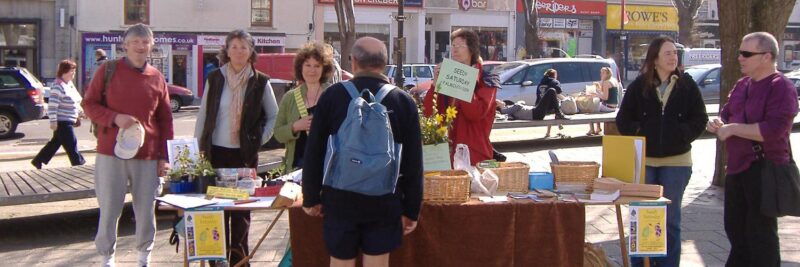The Transition Movement
Transition means change – a shift from one way of living to another. The Transition Movement, which began in Britain and Ireland in 2006, as a response to Peak Oil and Climate Change, has since grown into an international network of communities spanning many countries. It envisions a world where every individual can become part of a supportive community, feeling safe, welcomed, and empowered to thrive.
It is only at the level of community that we are able to imagine and create resilient and thriving living conditions that actually work within a turbulent transition era, so Transition emphasises local, community-led actions. It explores new ways we can work together to create communities that are fair, strong, and healthy for everyone.
Each Transition group chooses activities based on what local people need and want. This helps make sure the activities are useful and relevant for each community.
Transition groups and communities usually share these characteristics
- Engage with the need for change
- Co-create motivating and imaginative narratives and visions
- Connect and care for each other
- Support inner transformations
- Address injustice
- Apply Living Systems Design
- Take practical actions
- Contribute to a wellbeing economy
- Broaden and deepen participation
- Energise networks and alliances
Transition Falmouth

Transition Falmouth was one of the earliest Transition groups to form in 2006 *.
Since that time we have been delighted to witness the many other thriving environmental and social initiatives that have developed locally in and around Falmouth, so these days as a fairly long established group we are mainly focused on signposting to, and working with them!
We welcome content on our website from other local groups that share our ethos (most recently promoting the Falmouth Climate Cafes)!
Our own current ongoing projects include our Local Food Resources List and Circular Economy Guide “Too Good to Waste”.
Contributions welcome! Please join us!
* See here for the story of Transition Falmouth’s first few months (October 2006 up to March 2007), and here for more about Transition and Peak Oil.
